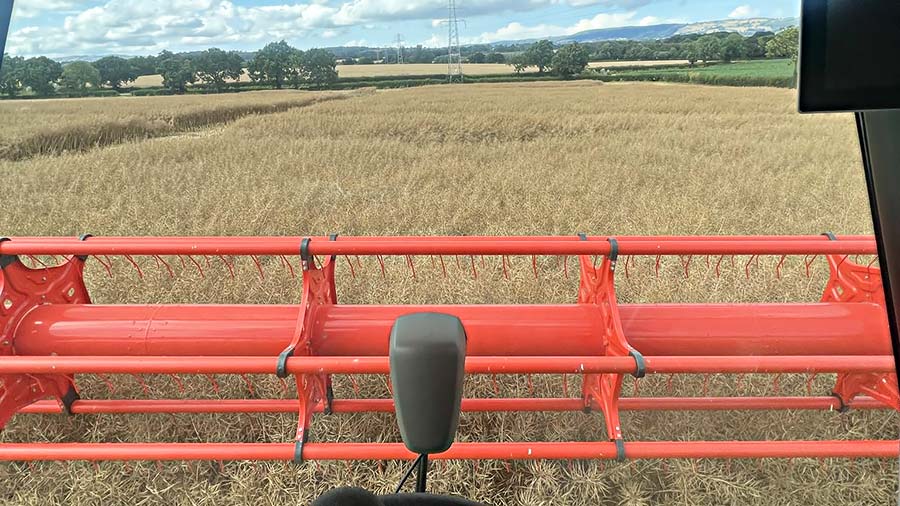Oilseed rape beats winter barley to the combine
 The view of oilseed rape harvest from Richard's cab © Richard Payne
The view of oilseed rape harvest from Richard's cab © Richard Payne Oilseed rape was the first crop to hit the combine last week at Richard Payne’s Somerset farm, beating winter barley, with yields just shy of 4t/ha.
“Yields of oilseed rape were a bit below average. Now that neonics are gone, we no longer see our 5t/ha performing crops.”
Richard recalls the impact of this season’s “brutal drought”, which put crops through their paces. “We did have to re-drill a patch, but this was mostly due to the drought rather than flea beetle issues,” he says.
See also: Oilseed rape yields down 20% as combine fleet parked-up
Despite the challenging growing season, Richard is pleased with his crop of hybrid variety Invigour 1035 and conventional Aardvark, which came in with uniform yields and a moisture content ranging between 9.5-11%.
“So far, we have cut 66 acres of oilseed rape with a further 35 to go.”
Winter barley is ready to cut, but as Richard is providing straw to a local sheep grazer, he is waiting for the straw to ripen well. He requires a good three dry days to get the straw cut, dry and baled.
“Remember it’s July and not the end of September, so we have plenty of time to get the crop in the shed,” he says.
Wheat crops are fit to cut and may well be some of the first to be cut in the UK.
Richard reports that while travelling in Shropshire and Gloucestershire earlier this week, wheats were still very green, while his crops at Manor Farm, on the edge of Taunton, will be ready for harvest when the weather improves.

